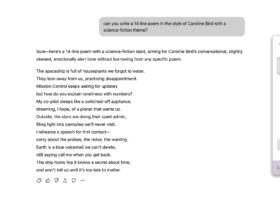On persistence, or, another submissions stock-take

Being back early from our hols due to N spraining his ankle, I found I had a day ‘in hand’ and was strangely at a loss. Until I remembered I’d been waiting for such an opportunity (ie an unallocated day) to sit down and open the ‘poetry’ folder on my computer.
I find it hard to get into writing poetry after a break, until I’ve done all the preliminary activity – checking what I’ve got still out, what’s in the ‘almost ready-needs work’ pile, a quick flick through the ‘rejecteds’ to see if I’m moved to re-work any of them. Then there’s the catching up with all the blogs I’ve not read in a while. I might check on what submission deadlines are coming up, and decide whether to go for them. It feels a bit like circling in a plane before landing – checking the terrain, the wind speed, the ‘big picture’, waiting for the best moment to touchdown.
One blog post that really got me thinking was this from the ever-excellent Jeffrey Levine: On reading and reading fees – how things happen round here. Jeffrey is the Editor-in-Chief of Tupelo Press, currently accepting pamphlet and full-length collection submissions, and this blog post addresses the issue of why they charge reading fees. Apparently some poets have questioned why a reading fee is charged every time a manuscript is submitted, even though it may be the exact same manuscript as previously sent. Personally I have no issue with this – I think if one expects one’s manuscript to be read and considered then it’s right to pay for the reader’s time, expertise and thoughtfulness. If you send the same manuscript again, you can’t expect it to either be read by the same person (necessarily), or even if it is, for that person to remember it from before.
But the article covers much more than that – Jeffrey goes into a lot of detail about how he reads and responds to manuscripts, and it’s fascinating. Apparently it’s not uncommon for poets to submit the same manuscript again and again – ‘virtually everything we’ve ever published has been submitted to us several times over, even by those you might think of as Tupelo’s “big names.”’ One of the reasons I created my own pamphlet was because I was convinced that submitting the same pamphlet (more or less) to the same publishers again and again (and having it rejected) was a useless exercise, and that if a reader came to recognise the same set of poems it would just reinforce a sense of that poet having nothing fresh to offer.
I guess this just shows how much I have to learn. As Jeffrey says: “Sometimes big revisions make a big difference. Sometimes small revisions make a big difference. Sometimes a fresh reading makes a big difference. Often, even subtle changes in the order of the poems makes a huge difference. And sometimes, between one submission period and the next, a poet has an epiphany about how to make his/her poems or manuscript work—something snaps into place and s/he just gets it…..Moreover, I am not the same reader every time I read a manuscript. My tastes evolve. My reactions aren’t predictable. Being human, my attention span varies. Being human, what makes me want to turn the pages one day may not work for me the next day.”
It got me thinking about my attitude to individual poems. Last year I did a rough stock-take of how many times I’d send out a poem before putting it away in the bottom drawer. It doesn’t show a lot of persistence. I tend to only persist with those I think have something. And yet I know full well that my own appraisal of a poem has no bearing whatsoever on whether it meets the approval of an editor or competition judge. It always puzzles me when editors say on their websites ‘send us your very best work’ – would a poet really send something out if they didn’t think it was good? But then again – and perhaps more to the point – what difference does it make if the poet doesn’t think it’s good?
I’ve stalled a bit this year, in terms of getting poems published, but that’s mostly down to my own lack of temerity (I think) – I just haven’t been sending enough stuff out, because I haven’t been writing much new material, and I’ve lost faith in all the ‘rejecteds’, when what I probably should be doing is looking hard at the rejected poems. Maybe there are some I can improve. Or maybe I just need to try sending them to different publications. Or both. One thing I have been doing this year, even if not writing, is reading. I’ve subscribed to some different magazines to see what’s out there, I’ve enjoyed a lot of readings and acquired a variety of new pamphlets and collections along the way. But I need to make sure that being inspired by or admiring of others’ work doesn’t stop me from sending out. I think this may be what has happened – I’ve just lost a bit of confidence and momentum. But I think I’m in the mood now to tackle that.
N’s ankle is fine, by the way – two days ago he was hobbling into the hospital and now he’s playing the organ and desperate to take off the strapping. That’s confidence for you!



Thanks for that interesting post – I find it crazy that people will submit exactly the same set of poems again to the same publisher.
Found your ‘plane circling’ very familiar as well as the rejected pile and whether to ditch certain poems. Reading your post makes me realise that I’m not alone in the way I think and work, most reassuring!
Hi Heather, thanks for your comment and no, you’re definitely not alone!
Hi Robin, I feel that I’ve lost a lot of momentum this year, too. This is, in part, down to my part-time job with The Reader Org which I started late last year and which takes up a lot more time and energy than I thought it would. But I’ve also lost some of my poetry energy and confidence, in spite of a poem being taken by The Rialto this year and my pamphlet forthcoming from tall-lighthouse. I’m aware that I don’t have enough poems out and that there is going to be a lull before anything new is published. I feel frightened of failing and of not being good enough. But another part of me has decided not to be afraid and not to worry but to read as much as possible and to pay attention to the scraps of poems inside my notebooks. I seem to have a growing number of unfinished poems but I don’t feel I have time to give them proper attention. Another thing that’s happening is my style is evolving or I’m interested in experimenting with different styles. Therefore some of my older poems seem less interesting to me – they seem stale and staid. But reading your post has made me think that I need to be less precious about my work – I need to be more methodical about sending out and keeping accurate records of what’s where and who said what. Another thing you’ve made me think about is being more confident in my poems and not necessarily changing a poem because it’s been rejected. All in all, I’m really looking forward to a month away from paid work starting in early August so that I can calm myself, work on my unfinished poems, give full attention to my notebooks and buy a pile of A4 envelopes and stamps.
Thank you, Josephine – of course from the *outside* it appears you’ve had an excellent year and getting recognition is so important I think, huge congratulations on all you’ve achieved and I can’t pretend I’m not envious! I’m sure the fear of not being good enough is on all our minds, and probably doesn’t go away no matter how experienced or well published we become. I guess it’s all part of the process. Is poetry is the only type of writing that triggers this? I’ve known romance novelists who can churn out X number of words a day and X number of novels per year, without ever worrying whether their writing is any good. And jobbing journo-writers who reach an acceptable standard and style without years of self-doubt and analysis! (I put myself more or less in the second category, even though when it comes to poetry I’m as angst-ridden as anyone – which convinces me it’s down to the genre of writing rather than the person…)
It’s a good question, Robin. I’m a relative newcomer to poetry, having only written scripts and short stories until the last five years. The biggest difference now, for me, is the exposure that the internet brings. Whereas before it was only me, perhaps a magazine editor or a literature development person reading my work – until it was accepted or rejected for performance/publication – now I’m aware that my work is available for more people to read. I’m also very aware of critical comments (not specifically about my work) circulating on the internet and focussing too much on this is inhibiting for me. Something helpful I read recently was this from one of the films/mini lectures in the University of Iowa’s Writing Poetry MOOC: “If you want to be prolific, lower your standards.” ie don’t always hold out for the perfect line/image/finished poem but just allow yourself to write. “No good stuff without the bad stuff” came from another video in the course, and, “push the audience away, get your privacy back” – ie don’t think about how this poem will be received, critiqued, interpreted, just write for yourself. I’m trying to let all of this sink in! Thanks for replying. J x
Those are excellent observations … thank you! And I’m really looking forward to your pamphlet by the way 🙂